News
-
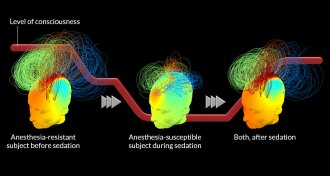 Neuroscience
NeuroscienceMeasuring brain waves may help predict a patient’s response to anesthesia
Brain signatures hint at whether a person will resist or succumb to anesthesia.
-
 Environment
EnvironmentPCB levels still high in Europe’s killer whales, smaller dolphins
PCBs banned for decades still show up at extremely high concentrations in Europe’s killer whales and other dolphins.
By Susan Milius -
 Life
LifeSigns of food allergies may be present at birth
Overactive immune cells may prime babies for food allergies.
-
 Archaeology
ArchaeologyAncient stone tools raise tantalizing questions over who colonized Sulawesi
Hominids reached an island not far from hobbits’ home by around 200,000 years ago.
By Bruce Bower -
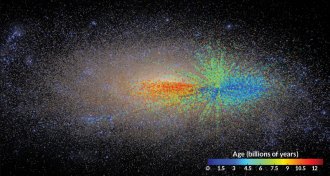 Astronomy
AstronomyRed giants map how the Milky Way grew
A new catalog of the ages of our galaxy’s stars confirms that the Milky Way grew from the inside out.
By Andrew Grant -
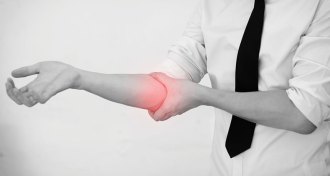
-
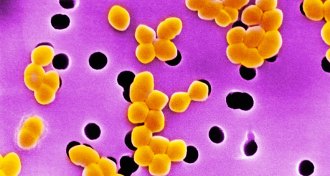 Life
LifeBody’s bacteria don’t outnumber human cells so much after all
New calculations show human cells about equal bacteria in the body.
-
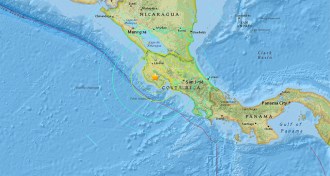 Earth
EarthGround shakes expose faraway earthquake hot spots
A major earthquake in Costa Rica revealed faraway areas where fluids have weakened rock and boosted the risk of a major earthquake, new research suggests.
-
 Astronomy
AstronomyTo search for an advanced civilization, take a U-turn to star clusters
Globular star clusters might be safe, stable homes for long-lived advanced civilizations.
-
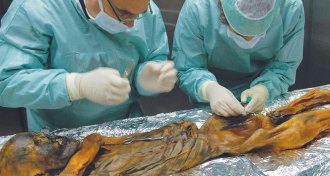 Genetics
GeneticsThe Iceman tells a new tale: Infection with ulcer-causing bacteria
Ötzi the Iceman was infected with a virulent strain of H. pylori. A new study is the first to piece together an ancient genome of these bacteria.
By Meghan Rosen -
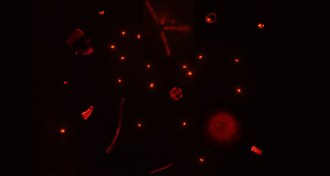 Oceans
OceansPhytoplankton flunk photosynthesis efficiency test
Nutrient-poor ocean waters make phytoplankton photosynthesis inefficient
-
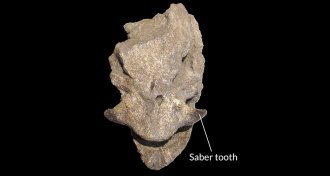 Paleontology
PaleontologySaber-toothed salmon teeth more like tusks than fangs
Saber-toothed salmon teeth may not have been positioned like fangs at all.
By Susan Milius